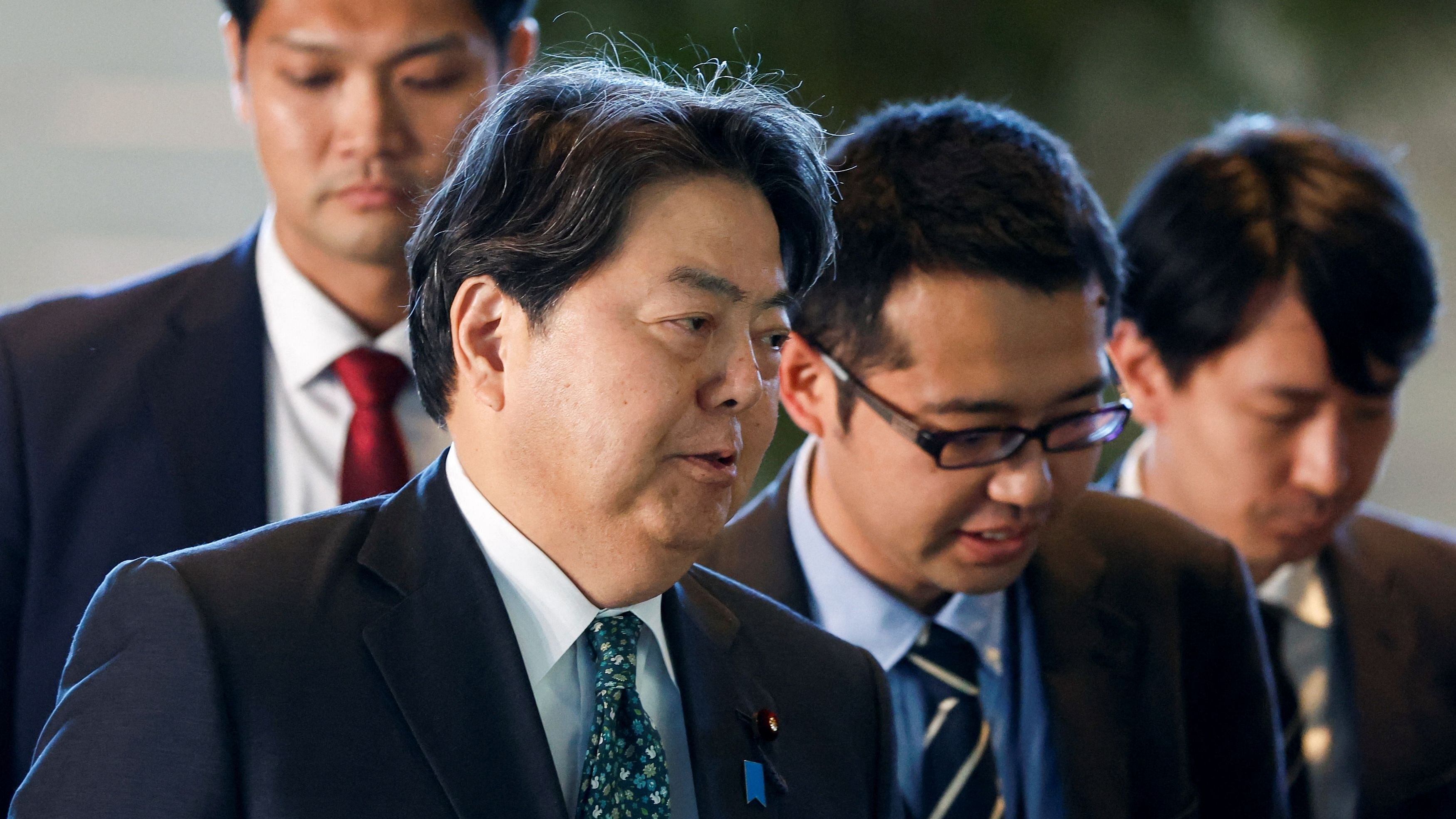
Japan's incoming Chief Cabinet Secretary Yoshimasa Hayashi arrives at Prime Minister Fumio Kishida's official residence in Tokyo, Japan December 14, 2023.
Credit: Reuters Photo
Japanese Prime Minister Fumio Kishida set about replacing key cabinet members on Thursday as he battled to control the damage from one of the biggest scandals his ruling party has faced in decades.
Chief cabinet secretary Hirokazu Matsuno and industry minister Yasutoshi Nishimura were among those who announced their resignations on Thursday after Kishida said he was finalising his third cabinet shake-up in 16 months.
Four ministers - all hailing from the biggest and most powerful faction within the ruling Liberal Democratic Party (LDP) that is being investigated by prosecutors - and several deputy ministers are set to be replaced.
Ex-foreign minister Yoshimasa Hayashi confirmed he had been tapped to replace Matsuno in the critical post responsible for coordinating policy across government on the premier's behalf.
"In light of the various allegations made regarding political funds, which have shaken the public trust in politics, and the various allegations made regarding my own political funds, I have submitted my resignation," Matsuno said at a press conference on Thursday.
Prosecutors have launched a criminal probe into the LDP's so-called Abe faction, named after late premier Shinzo Abe, and begun questioning dozens of lawmakers for allegations of receiving about 500 million yen ($3.5 million) in fundraising proceeds missing from party accounts, news outlets reported.
Investigators will start searching for evidence in lawmakers' offices from as early as next week, according to broadcaster NTV.
The probe will also examine whether other LDP factions - including one led by Kishida until last week - are involved, according to the reports.
The prosecutors office said it could not immediately comment on any ongoing investigation when contacted by Reuters.
'FURTHER DISRUPTION'
Some political observers have compared the affair to the so-called Recruit scandal in the late 1980s when allegations of insider trading led then prime minister Noboru Takeshita and several other top government officials to resign.
Since news of the latest scandal broke a few weeks ago, Kishida has seen his public support drop to around 23 per cent, the lowest since he came into office in October 2021, recent polls have showed.
Support for the LDP has also fallen below 30 per cent for the first time since 2012, when it returned to power after a blip in its near total post-war dominance of Japanese politics, according to an NHK poll this week.
The prime minister does not need to hold an election until October 2025, and a fractured and weak opposition has historically struggled to make sustained inroads into the LDP's hold on power.
The LDP will hold leadership elections in September.
But analysts say it remains to be seen how long Kishida can stay in the top job as the scandal throws his government into disarray.
A top LDP official who oversees budget proposals has also resigned, while Kishida is considering shelving a planned trip to Brazil and Chile next month due to his domestic problems, according to media reports.
"Kishida’s popularity has really taken a hit, so whatever he does he can’t do much to improve that," said Jun Iio, Professor of Political Studies at the National Graduate Institute for Policy Studies in Tokyo.
"He’s replacing his ministers while the government is still compiling its budget. That could cause further disruption, and on top of that, there’s no knowing if there might be more ministers who actually have similar problems."
($1 = 142.9400 yen)